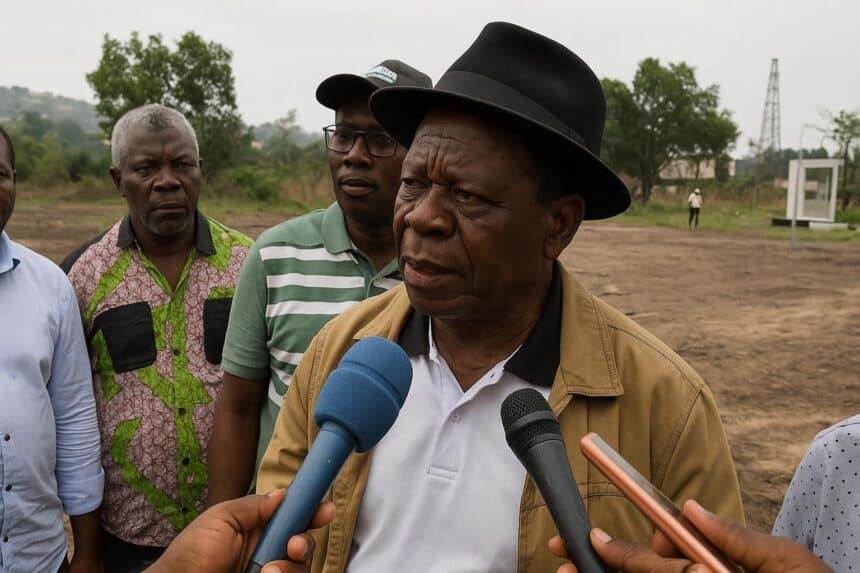Early enthusiasm among new owners
The purchasers who secured plots within the emerging Djiri estate have finally voiced their feelings, offering a rare glimpse into a transaction largely conducted online and by video. Their reaction, spread first through a short clip, mixes pride, curiosity and a determination to build quickly.
Most buyers describe the investment as a milestone for their families. Owning land in Djiri, they say, anchors them in Brazzaville’s growing northern corridor and answers years of saving. The sense of arrival is palpable, even though many have not broken ground yet.
In the video, applause greets each mention of future running water, paved roads and green areas. Even through a smartphone screen, the optimism travels fast. Several voices repeat the same phrase: ‘We see ourselves living here soon, not in ten years.’
Questions on delivery timetable
Joy, however, walks hand in hand with questions. When exactly will the estate’s shared infrastructure be finished? The clip shows one buyer gently raising the issue, noting that foundations rise faster when roads and utilities reach the plots. His comment draws nods across the group.
Another participant wonders aloud about land titles. She wants the official documents delivered before construction budgets are finalised. While the exchange remains courteous, it underlines a crucial point: paperwork is as valuable as bricks when families sink life savings into new walls.
The questions stop short of criticism. Instead, buyers frame them as part of a ‘constructive partnership’ with developers and local authorities. That wording, repeated by several voices, signals awareness that large projects advance more smoothly when dialogue stays open and respectful.
No firm completion date is given in the footage, only a promise that updates will arrive ‘soon’. For now, that single word functions as both assurance and deadline, encouraging patience while keeping pressure on those coordinating the next phase.
Community spirit takes shape
Beyond property lines, an early sense of community surfaces. In background conversations, the equal use of Lingala, French and a sprinkle of English hints at a diverse group bound by the same urban dream. New neighbours already exchange phone numbers for car-pooling visits to the site.
Several future residents propose a shared WhatsApp group dedicated to updates and troubleshooting. The idea gains instant traction. With commuting times stretching for many, instant messaging feels like the most practical town-hall, letting people compare quotes for bricks, track utility connections or simply celebrate milestones.
That collaborative mood, buyers stress, aligns with the estate’s marketing that presented Djiri not just as houses but as a lifestyle. Early gestures of solidarity, they believe, will translate into safer streets, cleaner public spaces and a livelier social calendar once the keys are handed over.
Service expectations grow
Water pressure, electricity reliability and internet speed dominate half the conversation. Residents point out that a modern suburb without these basics risks becoming a dormitory town instead of the vibrant quarter advertised. For now, they remain hopeful, noting that utility poles already line the main boulevard.
Cost also hovers in the background. Building materials remain volatile, echoing global trends. While no one dwells on figures during the filmed gathering, whispers of cooperative purchasing rise. Pooling orders for cement or tiles could shave precious francs from individual budgets, a proposal quickly bookmarked for later.
Next steps on the horizon
Before leaving the site, the group agrees to meet again once a formal progress report is released. They plan to invite representatives of the developer, surveyors and a notary, ensuring every update carries legal and technical clarity. The tone remains upbeat, tinged with practical urgency.
As the sun dips behind the line of eucalyptus trees, phones switch off and handshakes replace emojis. For the Djiri buyers, the day ends where the next chapter begins: turning raw plots into homes, and a simple reaction into an organised voice capable of shaping the neighbourhood.
Economic ripple effect for Brazzaville
Small businesses already feel a gentle surge. Street vendors along the main access road confirm higher weekend sales whenever prospective owners visit. A mason from the neighbouring Makélékélé district says he has booked three preliminary contracts, describing Djiri as ‘the site that could feed many families’.
Local banks, according to several attendees, have begun tailoring micro-credit products to match the estate’s construction stages. The goal is simple: release funds in tranches tied to roof level, plastering or final inspection, reducing risk for both lenders and borrowers while keeping building crews paid.
Policy watchers note that the Djiri model aligns with the government’s wider push for orderly urban expansion. Planned suburbs, they argue, limit informal sprawl and help authorities budget for schools, clinics and transport links. In that sense, each buyer’s reaction today echoes a national development conversation.






















